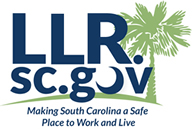Hello REALTORS®,
As we get closer to the November elections, something else is getting closer as well: the end of the two-year Congressional session. That means the pressure is on to get our Washington agenda done before December, when all unadopted legislation dies.
NAR updated Government Affairs Directors and Federal Political Coordinators on their current legislative priorities:
- More Homes on the Market Act: this law will decrease the equity penalty when a home is sold and incentivize more long-term owners to sell their homes.
- Neighborhood Homes Investment Act: this law will create a tax credit to attract private investment in low- and moderate-income neighborhoods. Senator Tim Scott is a co-sponsor.
- Affordable Housing Credit Improvement Act: this law will create a tax credit for builders and investors to build and preserve affordable housing.
- Increase the $10,000 cap on state and local tax (SALT) deductions and eliminate the marriage penalty. When the $10,000 SALT cap was imposed in 2018, only certain states with high property values and taxes were affected. But in the last six years, rising home valuations have brought the SALT tax into play in more areas of the country, including some areas of South Carolina. The SALT tax, combined with the marriage penalty, are teaming up to limit homeownership opportunities for young families.
In addition to those priorities, NAR continues to advocate for preserving the 199A qualified business income deduction and 1031 like-kind exchanges.
VA Representation Update
In May, more than 1,000 Realtors went to Washington to lobby for the elimination of a Veterans Administration rule that prohibited VA buyers from compensating their buyer’s agent. Their efforts paid off. Recently, the VA instituted a temporary policy allowing VA buyers to pay their Realtor. Now, NAR has turned to Congress to advocate for making the rule permanent. That legislation went through a process called “markup” last week. Markup means all requests for amendments are considered in committee before the bill is considered on the floor.
What is a Federal Political Coordinator (FPC)?
I am glad you asked. An FPC is a Realtor, and sometimes several Realtors, who work directly with their member of Congress. The FPC is a critical member of NAR’s Advocacy Team that lobbies for your interests in Congress. We have two FPCs in the Western Upstate:
- Loraine Harding, FPC for Senator Lindsay Graham
- Don Cleveland, FPC for Congressman Jeff Duncan
Local Updates
All local governments have focused for the last two months on adopting their budgets. And nearly all of them have passed revenue increases, mostly in the form of fees. Many of those fees, like building and zoning permits and recording fees, affect real estate. Some of those increases are substantial.
Clemson is considering requiring bonding of the build out of new commercial spaces in mixed-use developments.
Oconee County is considering ordinances to:
- Designate a portion of Highway 130 (Rochester Highway) as a scenic highway
- Limit the sale of county-owned property to any Chinese company
- Regulate outdoor lighting and require additional buffering and open space in new developments.
And Anderson County has joined a multi-jurisdiction sewer project in the Pendleton Area. The participants are the Town of Pendleton, which will operate the new project, and the City of Clemson and Anderson and Pickens counties. Anderson County Council also approved the issuance of $25 million in bonds, secured by the future revenue from the project, to help pay for it.
Serve on a Board or Commission in Clemson
One last thing—Clemson extended its application deadline to apply to serve on some of its boards and commissions. The new deadline is July 12 at 12 noon. Among the appointments available are for the Economic Development Advisory Committee and the new Sustainability Committee. Most require city residency; but not all. Check out the options by clicking here.
Support RPAC
Elections are an important way that your association represents you and helps make a strong market for real estate. Through RPAC, your association supports pro-business candidates who understand the importance of a vibrant economy for real estate. You can help by supporting RPAC. It’s easy. Your association includes a voluntary contribution to RPAC on your annual dues invoice. Pay it, and you are an RPAC supporter. If you haven’t supported RPAC this year, I encourage you to do so by clicking here.
Michael Dey, Director of Government Affairs



